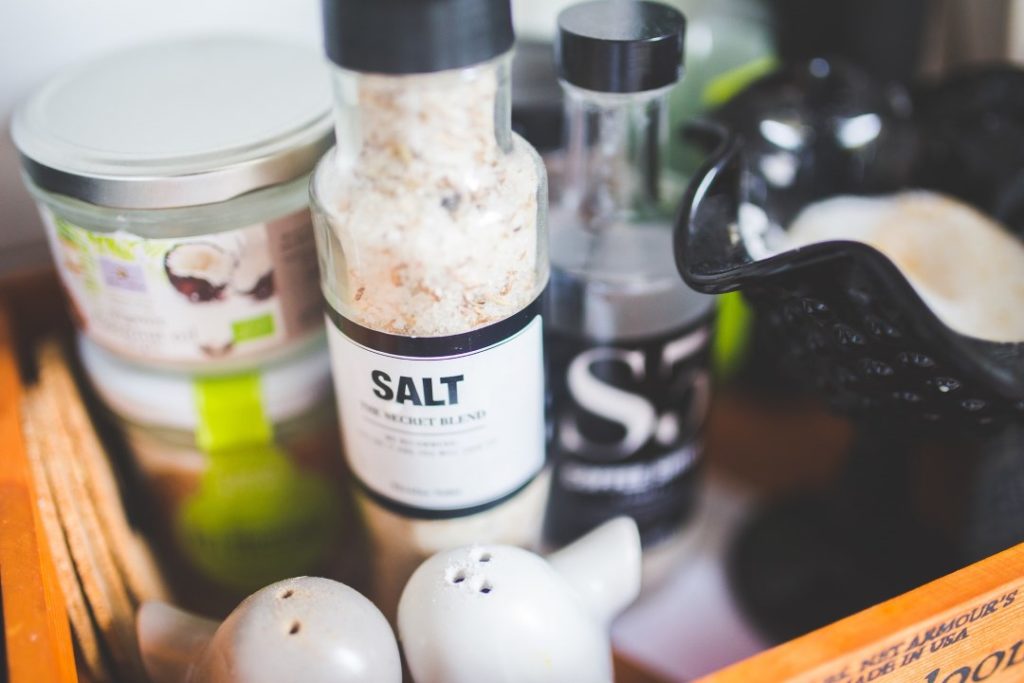
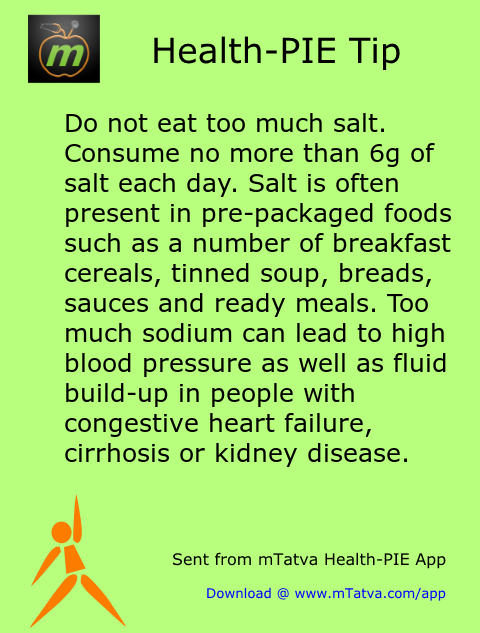
Do not eat too much salt. Consume no more than 6g of salt each day. Salt is often present in pre-packaged foods such as a number of breakfast cereals, tinned soup, breads, sauces and ready meals. Too much sodium can lead to high blood pressure as well as fluid build-up in people with congestive heart failure, cirrhosis or kidney disease.

Sodium is essential to the body for fluid balance, muscle contractions and nerve reactions but those suffering from high blood pressure (hypertension) should have a low sodium intake.
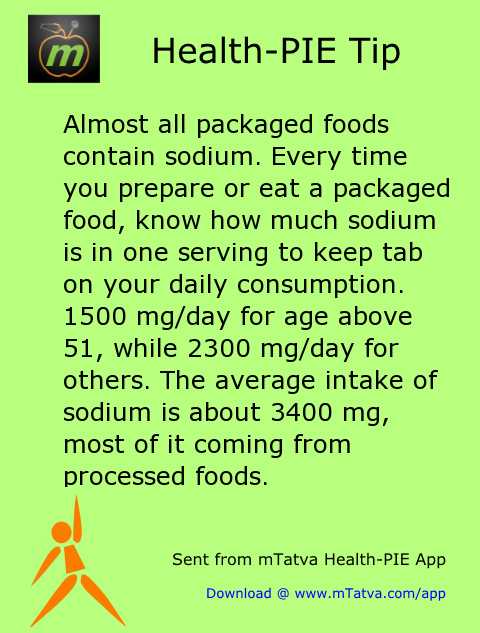
Almost all packaged foods contain sodium. Every time you prepare or eat a packaged food, know how much sodium is in one serving to keep tab on your daily consumption. 1500 mg/day for age above 51, while 2300 mg/day for others. The average intake of sodium is about 3400 mg, most of it coming from processed foods.
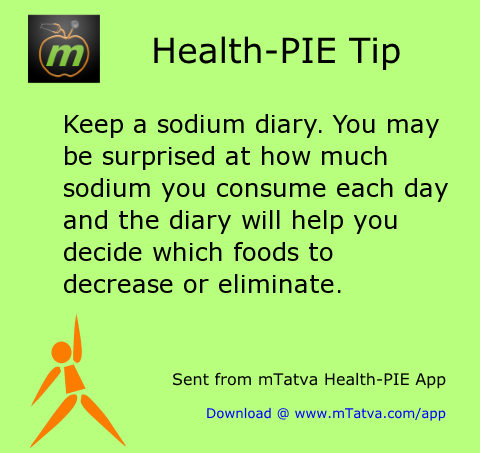
Keep a sodium diary. You may be surprised at how much sodium you consume each day and the diary will help you decide which foods to decrease or eliminate.
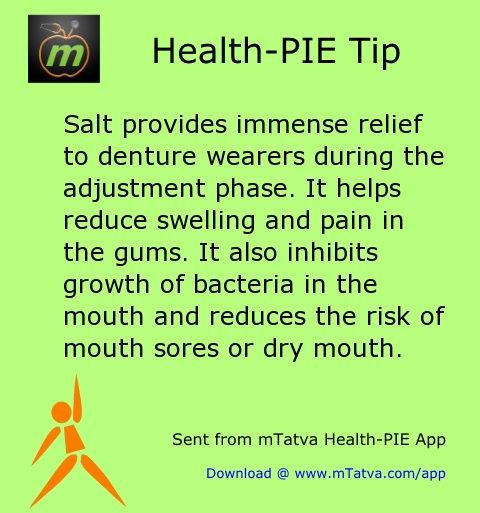
Salt provides immense relief to denture wearers during the adjustment phase. It helps reduce swelling and pain in the gums. It also inhibits growth of bacteria in the mouth and reduces the risk of mouth sores or dry mouth.
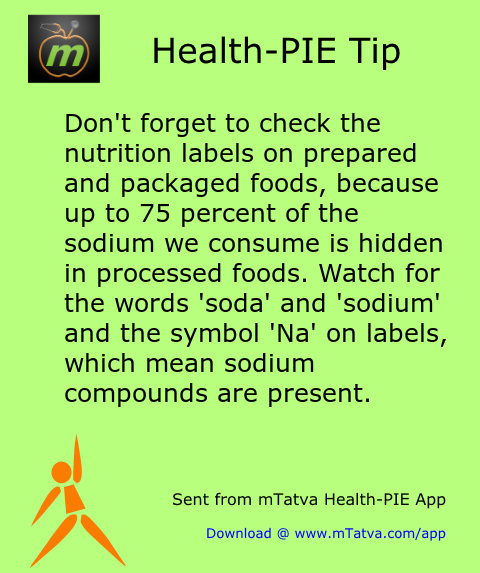
Don’t forget to check the nutrition labels on prepared and packaged foods, because up to 75 percent of the sodium we consume is hidden in processed foods. Watch for the words ‘soda’ and ‘sodium’ and the symbol ‘Na’ on labels, which mean sodium compounds are present.
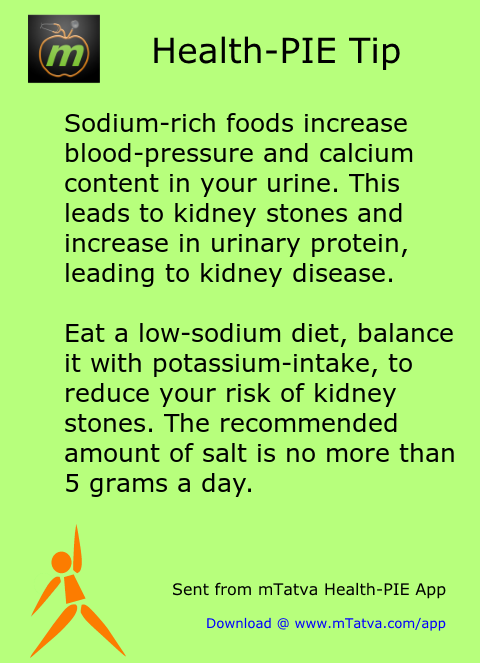
Sodium-rich foods increase blood-pressure and calcium content in your urine. This leads to kidney stones and increase in urinary protein, leading to kidney disease.Eat a low-sodium diet, balance it with potassium-intake, to reduce your risk of kidney stones. The recommended amount of salt is no more than 5 grams a day.